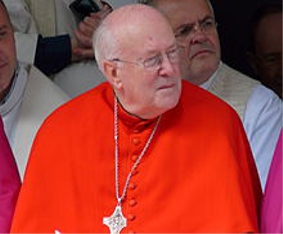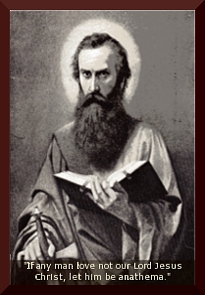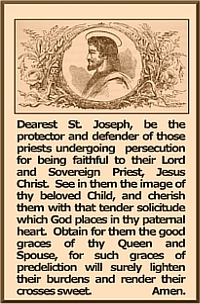Make what you will of this. I already had, for some time now, formed my opinions. The article, published on 8/13/13, is translated from the Spanish at the InfoVaticana blog:

Extracts leaked to the press from the diary of a Cardinal in the conclave that elected Pope Benedict.
Proceedings of the conclave that changed Joseph Ratzinger into Benedict XVI, did not unfold as was thought at the time.
The main opposition to Cardinal Ratzinger was not in the Jesuit Cardinal Carlo Maria Martini, but in that of another Jesuit, the Argentine Jorge Mario Bergoglio, who finally became fearful, and backed-off. It is one of the hitherto unknown facts in the transition at the Vatican.
Limes, a prestigious Italian magazine of geopolitical information, yesterday published an unusual document: the alleged diary of a Cardinal written during the April [2005] conclave. The magazine maintained the anonymity of the cardinal’s identity for obvious reasons, but it endorsed the authenticity of the diary. Vatican sources limited themselves to say that if the revelations were true, a serious breach of the oath of secrecy made by all participants in the conclave is surmised.
The diary recounted some anecdotes, like that of the surprise of the author in not being able to open the shutters of his room (sealed for reasons of sequestering) and outings of the Portuguese Cardinal Jose da Cruz Policarpo out into the yard to smoke a cigar. Of more significance, were cited the complaints raised by a group of Cardinals against a “conflict of interest” of Joseph Ratzinger, while Dean (and therefore conclave organizer) and leading contender. It was proposed that the next dean be of more than 80 years, so he could not aspire to the papacy, but the idea did not carry through: the current dean is the Secretary of State Angelo Sodano, about to turn 79.
The gist of the document was, in any case, the narration of the primary competition that existed between Ratzinger, the powerful Prefect of the Congregation for the Doctrine of the Faith, the late pope’s right hand and dean of the College of Cardinals, and Cardinal Archbishop of Buenos Aires, Jorge Mario Bergoglio. On the first “feeling out” ballot, Ratzinger won 47 votes. The runner-up was Bergoglio, a Jesuit orthodox in dogmatic issues but flexible in sexual ethics (“They want to put the world into a condom,” he joked in private), around whom, surprisingly, the entire block more or less liberal and opposed to Ratzinger, gathered.
In that first vote of April 18 in the afternoon, the leader of the reformists, Carlo Maria Martini, had nine votes. What weighed against Martini, former archbishop of Milan, was the state of his health: He was suffering from incipient Parkinson’s disease, the same disease that afflicted Karol Wojtyla for years.
The goal of the anti-Ratzingers was not to win. Cardinals, such as the Belgian Danneels or the group of Germans (who opposed their compatriot), were aware that most members of the College of Cardinals had been appointed by John Paul II by conservative criteria, and that from that kind of electorate, there could not emerge anything reformist. The objective was to get a solid minority to block the German Cardinal from getting the two-thirds needed, thus persuading him to drop out in favor of a more conciliatory, alternative candidate.
The uneasiness of the Ratzingerians, who did not expect strong opposition, became visible at dinner time. “Great concern among the Cardinals who support the election of Cardinal Ratzinger,” wrote the diarist. Bergoglio remained in silence. The Columbian Cardinal Alfonso Lopez Trujillo tried to convince the other South Americans that they should not opt for Bergoglio because there was “no real alternative to Ratzinger”.
In the second ballot of the next morning, Ratzinger rose to 65 votes, and Bergoglio, 35. Cardinal Martini felt optimistic in seeing the evidence that Ratzinger could not garner the two-thirds needed. On the third ballot, before lunch, Ratzinger got 72, Bergoglio 40. Gathered around the Argentine Cardinal, something was said which gave the appearances of a blocking minority. “Tomorrow, big news,” Martini told a colleague. He hoped that the two votes in the afternoon would followed along the same line, and that Ratzinger would drop out that night.
The opposite happened. While Martini saw growing hopes of shutting out the Panzerkardinal, other more attentive observers perceived that, Bergoglio who, with sufficiently clear vision, made it understood that he was not prepared to continue, or, in the ultimate case, to assume the pontificate. Bergoglio was afraid. And that meant that, after lunch, a group of rebels decided to return to the Ratzinger camp.
In the fourth and final vote Ratzinger reached a sufficient majority, with 84 votes, and Bergoglio dropped to 26. The bad humor of some cardinals was reflected in strange votes, as that attribute d to Bernard Law, former archbishop of Boston, who retired after the scandal of pedophile priests. “In the Sistine there was a moment of silence followed by a long and warm applause,” says the diary. At the end of the conclave, Cardinal Danneels, the only one to publicly lament the choice of Ratzinger, now uttered a phrase that now takes on meaning: “The time to elect a HispanicAmerican has still not arrived.”
d to Bernard Law, former archbishop of Boston, who retired after the scandal of pedophile priests. “In the Sistine there was a moment of silence followed by a long and warm applause,” says the diary. At the end of the conclave, Cardinal Danneels, the only one to publicly lament the choice of Ratzinger, now uttered a phrase that now takes on meaning: “The time to elect a HispanicAmerican has still not arrived.”




It certainly appears that way, Kate. The modernist clique in the conclave had an agenda, and they must be gloating, that now, finally, they have won! So many Catholics have the erroneous belief that God selects the best candidate, and that the wholly docile college of Cardinals allow the Holy Spirit to guide their fingers as they mark their ballots. So, they dangerously believe and accept and follow wherever a Pope will lead. These are the time of diabolical confusion, as Sr. Lucia warned. To maintain our Catholic faith whole and intact we must cling to the faith as once delivered to the Apostles, our Apostolic faith, not a “living faith” which acclimates itself to modern times and according to the personal theology of the reigning occupant of the Chair of Peter.
We must pray very much for this Pope.
Fiat
So it was not a vote of much prayer then , rather a vote of NOW is the time for a Hispanic American to be elected.